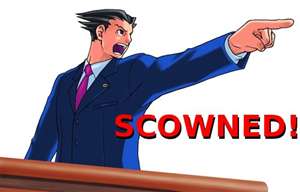Seeking to stave off final defeat, SCO has brought a (fourth) new reorganization plan to bankruptcy court. The company has proposed an asset sale to raise funds for paying off the rest of its debts and implementing a new business plan.
SCO collapsed in 2007 after losing a four-year court battle over the ownership of the original UNIX SVRX copyrights. SCO claimed that the open source Linux operating system included intellectual property that had been misappropriated from UNIX, but the case fell flat when the court discovered that Novell, not SCO, was the rightful owner of the SVRX copyrights. During the discovery process, information also emerged which indicated that SCO's claims about Linux were fraudulent and that the company's own internal source code audits showed no evidence of infringement.
SCO's loss in court compelled the company's remaining investors to jump ship. The stock value plummeted and SCO found itself with some hefty debts. The legal decision has been upheld despite SCO's protests, and it looks like the dying UNIX vendor's case has completely run out of steam.
Consistent failure and the overwhelming amount of evidence against SCO's legal arguments still haven't persuaded the company to give up its fight, however. CEO Darl McBride is still irrationally convinced that SCO is right and that it can prevail in court. While the company attempts to fight on, its three previous reorganization plans have all failed and the Department of Justice's Trustee Program is losing patience with SCO's stalling tactics.
In the latest reorganization filing, the company proposes an asset sale that would see its server platform and mobile technology sold off to the highest bidder. After the reorganization, SCO contends that its business would be based on its licensing program, commercial UNIX sales, and one-off custom UNIX enhancement projects for customers. The plan also indicates that SCO will reduce its operating expenses by 20 to 30 percent in 2009.
"SCO Group will conduct a public auction for the sale of the Mobility Assets and OpenServer Business pursuant to sale and bidding procedures to be approved by the Bankruptcy Court," SCO's filing says. "The proceeds of the Asset Sale(s), after payment of fees and costs associated with the Asset Sale(s) shall be used to fund the Plan, and possibly to fund operating expenses of the Reorganized Debtors subsequent to Closing."
 This plan looks extremely flimsy. As Judge Kimball noted in his 2007 ruling, the SCO Group has consistently operated at a loss and was only able to generate profit by selling SVRX licenses, which the company didn't even have the right to do. It looks unlikely that SCO can generate a revenue stream after it sells off much of its remaining technical assets.
This plan looks extremely flimsy. As Judge Kimball noted in his 2007 ruling, the SCO Group has consistently operated at a loss and was only able to generate profit by selling SVRX licenses, which the company didn't even have the right to do. It looks unlikely that SCO can generate a revenue stream after it sells off much of its remaining technical assets.
But the company's ringleaders still think that they deserve compensation for trying. The annual compensation for four top executives, as specified in the plan, collectively adds up to just under a million dollars, though SCO admits this might have to be cut by 10 or 20 percent if the asset auction doesn't bring in as much money as hoped.
reader comments